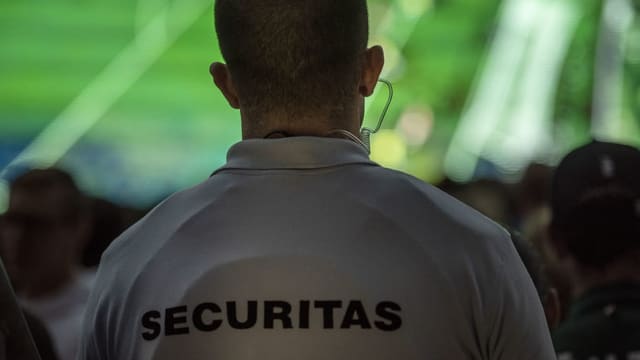It’s all about this: Private security companies are growing. They have has gained in importance in Switzerland over the past two decades. More and more often, the public sector is outsourcing orders to private individuals – for example, in the case of delicate prisoner transports. If the prisoners put up a fight, these security services should not intervene. You have no legal authority to do so. This is not unproblematic.
How big is the private security industry? According to the Association of Swiss Security Service Companies (VSSU), the umbrella organization of the industry, there are currently 769 companies. The number has hardly changed over the years. They employ over 23,000 people. According to its regional manager, the security company Vüch alone employs around 400 people. There are therefore more private security forces than police officers, of whom there are almost 20,000.
How big is the turnover of the branch? In contrast to the number of employees, sales in the industry have been falling since 2019 for the first time in eight years. Before that, however, it had risen steadily. While the private security companies took in around 900 million francs in 2012, in the corona year 2020 it was already around 1.2 billion. Business at Vüch is so good that they can’t even take all orders, says regional manager Roland Pleithner.
Who are the key players in the market? Private security companies have existed in Switzerland for over a hundred years. The first company, founded in 1905, is noisy humanrights.ch also the best known and largest: Securitas AG. The company now includes 26 companies in Switzerland and abroad, which, in addition to classic security services, are also active in the field of alarm and security systems. This is also confirmed by Securitas spokesman Urs Stadler. Right behind Securitas is Protectas AG, followed by the other players “relatively far behind”. These include Delta, Daru Guard, Vuch, and many more. Securitas receives around a fifth of all orders from the public sector. According to regional manager Roland Pleithner, at Vüch it is even 93 percent.
Is it problematic if the public sector increasingly commissions private security services? “I take a very critical view of the privatization of police tasks,” says Markus Mohler, an expert in police and constitutional law and former police commander in Basel-Stadt. He considers these tasks to be “very difficult” and one cannot simply outsource them arbitrarily. ‘Very special security duties, yes. But that is very limited,” says Mohler.
For Karin Kayser-Frutschi, Deputy Director of the Conference of Cantonal Police Directors, it is a fact that private individuals do not have the same training as police officers. However, it is precisely for this reason that security services are only assigned tasks that correspond to their training and that, for example, cannot involve any physical coercion. The prisoner transport is one of them, because the prisoners are only transported by the security services.
In principle, however, the cantons, communes and the police would have the goal of coping with these tasks themselves. It is due to the limited human resources that these tasks are passed on to the private sector.
9:50. 01/23/2023, 9:50 p.m
